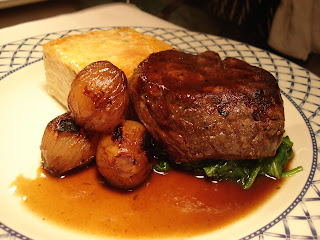Why is Cloned Meat So Hard to Swallow?
Please pardon the dodgy pun, but why is cloned meat so hard to swallow? The controversy over the recent Food Standards Agency (FSA) revelation that meat from the offspring of a cloned animal somehow made its way to UK consumers continues to intensify. But what is all the fuss? Is this meat not safe to eat? The European Parliament have sanctioned the consumption of cloned beef meat and dairy products in the EU, including the UK, provided proper permission is sought. As does the United States for that matter. So permission was not sought in this particular case, does that mean we should all be panicking? Well no, because let’s face it; none of the beef meat we eat is “natural”!
Think about this for a minute. Suppose you are sitting down to eat a nice juicy, medium rare fillet steak from a non-cloned animal. Do you think this meat is natural? Well it most probable isn’t because it is very likely that the father of the animal you are currently thinking about eating resembled something close to a turkey baster! Artificial insemination is common practice in most Irish and UK farms (even organic farms) with an individual bull, should he be of exceptional genetic merit, likely to father tens of thousands of sons and daughters, probably without ever actually copulating with a cow. Is this natural?
Now let us think for a moment about the genetic origins of the bull, the father of our juicy steak. If the bull is a pure breed (let’s say Angus) then it is very likely that he, or his offspring, have bred with close relatives in an effort to increase their genetic merit (in this case muscle mass). Are you comfortable with this thought? The idea that your juicy steak is inbred, possible with genetically inherited deformities?
But milk and dairy products are natural, right? Well no. Artificial insemination, selective breeding and inbreeding are all common place on Irish and UK dairy farms too. Additionally, embryo transfers are also common in dairy farms. This is where the fertilised eggs of high yielding dairy cows are artificially inserted into less productive cows. Sounds completely natural?
The consumption of cloned food products is not dangerous. If the animal that was cloned was safe to eat then its cloned offspring, being genetically identical, should logically also be safe to eat. Cloned food products are not uncommon. Most of the vegetables you eat are in fact natural “clones”, propagated by the growing adult plant. Carrots, potatoes, strawberries and onions are all natural “clones”, being genetically identical to their parent plant. The use of micro-propagation techniques in agriculture manipulates the ability of plants to produce natural clones to create larger volumes of superior higher yielding vegetable crops. Not natural but perfectly safe.
Additionally, the development of genetically modified foods will continue to become more common amongst UK farmers since recent EU legislation permits the growth of genetically altered disease resistant potatoes. These foods will soon make their way into your supermarket and hopefully won’t cause too much of a panic. I, for one, am glad that the potatoes I will enjoy with my juicy cloned steak won’t need to be sprayed every 10 days with fungicides to prevent potato blight.



Comments
If people knew half as much about the meat industry as they think they want to, we'd be 95% vegetarians.